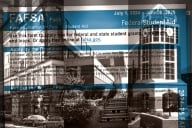You have /5 articles left.
Sign up for a free account or log in.

Istock/deezaat
When my wife, who now leads Governors State University, accepted her first college presidency, I was elated. Mostly I was happy for her, but, as implications of the position broadened in my mind, I thought, not entirely objectively, about personal opportunities I might find tempting. These would, I rationalized, help balance the standard kinds of support I expected to provide.
I had retired as a high school English department head less than a year before. Frustration with shrinking budget allocations, a yearly fixture in our system, had gradually diminished my love of teaching. With the economy in bad shape, I saw little likelihood of imminent improvement. So I opted for what I had fitfully contemplated: early retirement. I reasoned that the hiatus from the classroom would be brief and I’d resume teaching at some venue fairly quickly. I picked up random courses at local universities, but they proved only marginally satisfying. There was no assurance of continuity, so I had to adjust to the role of academic temp, which did little to rekindle my enthusiasm for the classroom.
My sense of professional wheel spinning, it seemed, was about to end. At my wife’s new university, I convinced myself, I could, among other attractive prospects, design and teach new literature courses. One that intrigued me would examine the literature of sports, a topic that appealed to my inner fan and had excellent writing to explore with students. The projected reading list, for example, would include Robert Coover’s The Universal Baseball Association, Inc., J. Henry Waugh, Prop. And I’d happily introduce my class to the subtle commentary of Red Smith, the superb sports columnist of yore, whose observations about that part of our culture remain remarkably relevant. I was excited. My anticipation revved up in Indianapolis 500 mode.
Then I confided this aspiration to a friend, who happened to be a full-time English professor. He half smiled, rather indulgently, I thought, and then fixed me with a sympathetic gaze.
“You,” he inquired softly, “at your wife’s university?” In case I hadn’t understood his implication, he slowly spelled the word “nepotism.”
“Yeah,” I responded, “but I wouldn’t be coattailing. I think I have something worthwhile to offer.”
“Oh, I’m sure that will protect you,” he said.
So went my first encounter with academic common sense and how it and I were destined frequently to have an adversarial relationship. Our sparring match has continued for two decades. In that time, I’ve taken a few hard punches, which, counter to logic, have sharpened my acuity. I’ve learned that, in the realm of presidential spousedom, common sense should prevail over personal enthusiasm and that appearance, regardless of justification, often vanquishes a promising reality.
In that time, I’ve developed into a decent, though occasionally reluctant learner. While my desire to contribute positively to my wife’s crusades on behalf of higher education continues strong, it has focused on inconspicuous but, I believe, worthwhile enterprises. In short, I’ve accepted my role as a utility player on the team she manages.
As a baseball fan, I hold a special place in my heart for the dwindling number of these aptly labeled players, the ones ready to come off the bench and perform generally well in roles that, moments before, weren’t anticipated. Among other duties, they may pinch-hit, replace an injured teammate or provide enhanced defense late in a game. They are versatile, dependable and highly skilled. But compared to the home-run-crushing slugger or to the fireballing, intimidating pitcher, they exist in relative obscurity. They are the assorted what’s ’is names, who strengthen their teams by being activated at the right time.
I’d never have anticipated, for example, the value of a now-ingrained habit. I’m an inclusive reader, particularly of local publications. Once, early in my wife’s first presidency, I ran across an article that had indirect yet potentially important implications for her institution. I wanted to discuss it with her, but, with the great amount of compulsory reading required of her, she hadn’t seen it. From that time, I became the designated reader, a kind of print catcher in the rye, alert to anything she might need to know. Most of the time, she’s aware of what I mention, but occasionally I’ve alerted her to something she was glad not to miss. Being a backup reader has proved its value in an information-saturated environment.
In addition, I’ve surprised myself with the social ease I’ve gradually developed at university events. For many people, this facility might be a given. For me, an only child, the potential for being pleasantly gregarious was buried under layers of natural reticence. Gradual immersion into academic sociability has improved my comfort level.
I’m appreciative of what I sense as a growing acknowledgment of a spouse or partner’s right to individuality. Not long ago, major role choices for me might have been preordained. Some veteran presidential spouses have traumatized me with accounts of duties imposed on them to organize campus events -- Christmas parties, for example -- activities not on my to-do list. In recent years, however, spouses and partners have been able to opt for involvement suited to their tastes. One size no longer fits all. A number of spouses are less involved in campus goings-on because of responsibilities in their own professions. Conversely, others enjoy the more traditional roles of serving as campus hosts or hostesses.
Obviously, to be most effective, I want to feel comfortable with and competent at any responsibility I take on. I’m happy that my willingness to serve has never been taken for granted. As manager of the team, my wife has never pushed me to enter the game unwillingly. Veteran utility player that I am, I know my strengths, and she respects my judgments.
Teaching has always been my passion, and faculty and staff members, once they have gotten to know me, have suggested a broad range of volunteer activities. Drawing on my academic background and personal experience, I’ve worked with student leaders to help refine their communications skills, both oral and written. The fact that in the end, I’m not compelled to assign grades avoids the evaluative barrier that can detract from the mentoring relationship.
Through a program coordinated by the university’s School of Extended Learning, I work, too, with senior citizens, who are tempted by the prospect of writing memoirs but who need various kinds of encouragement to get started. Having begun my own memoirs several years ago, I feel qualified to share suggestions about overcoming obstacles and reinforcing lagging motivation.
A bonus for me in these two projects is the stimulation inherent in working cross-generationally. Because these groups sometimes differ in their learning styles, I enjoy the challenge of devising separate strategies for each.
Sometimes my role as utility player opens up opportunities for unconventional and fascinating activities. My wife once was head of a large branch of the state university in Alaska. One year, early in March, the college of business sent a group of students to assist Alaska natives with preparing their IRS documents. I chaperoned the students on their trip to Napakiak, a remote village in the bush. While there, I was to help facilitate communication between students and residents.
Driving 10 miles via pickup truck down the frozen Yukon River to get to the village met my need for excitement. Stimulating as that was, there was a more important outcome: the trip had a lasting effect on my social awareness. Initially uncertain, therefore somewhat concerned about how I’d relate to a group unfamiliar to me, I was unprepared for the worldly, infectious sense of humor I encountered among residents. Years later, I remember that visit with affection. Obviously, utility players should never lose their capacity to learn.
I’m currently involved in planning another project that several weeks ago would have seemed as unlikely as civil political discourse. I am scheduled to teach the elements of baseball to a group of visiting faculty from Sakarya University in Turkey. That might seem like an excellent fit for a seasoned veteran like me. Actually, that happened to be my first reaction. Then came full recognition of the complex details involved in the presentation. In essence, how do I explain a detailed, distinctively American game to a group of adults who are on campus to learn English as a second language? Complicating matters further, my effectiveness will be apparent several days later when we all attend a Chicago Cubs game at Wrigley Field.
While my contract with our university team is a long-term one, I don’t want to become complacent. I continue to work on this with the zeal of a rookie. I don’t aspire to be selected to the campus all-star team. By now, I know my strengths, some of which, incidentally, I was unaware of 20 years ago, and I think I know how they can best serve the university. That I can do so quietly and informally makes me happy with my role.
I wouldn’t be a teacher if I didn’t have a bit of final advice for presidential spouses and partners, especially new ones, who’d like campus involvement: be watchful for areas where your expertise can benefit the university. Consider kinds of activities you would enjoy participating in. Let appropriate people know of your willingness to be helpful. Then, be patient. There’s a considerable likelihood that various satisfying opportunities will present themselves -- and they’ll keep you in the game.








